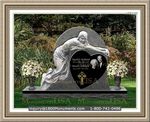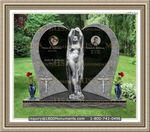|
Basics To Expect When Engaging Traditions For Jewish Funeral
Following Jewish funeral traditions, mourners should never leave the deceased unattended. A Shomer, or "watchcmen", must stay with the deceased from their death until the time of the funeral and burial. The family typically supplies the watchmen and other family and close friends in mourning will stay with the body as well. Upon a death, the family must first call the rabbi, who will proceed with funeral arrangements and set a time for the funeral. Funerals are in the temple or synagoge, although modern Jews often hold graveside services only.
Jews do not believe in viewing the body after death; it is disrespectful because the deceased person cannot look back at you. Therefore, Jewish funerals are usually closed casket.
Jews typically do not embalm the deceased, unless it is required by law. Instead, the Chevra Kadisha, a sacred society of Jewish followers, prepare the body for burial. They perform the Jewish Taharah, a purification process.
They bathe the body and dress it in the Tachrichim, which is the traditional burial garment. It is a simple shroud without any pockets. This symbolizes to all that the deceased does not take any material possessions with them when they leave this world and that God will judge them based on their merits and deeds alone.
It is tradition that the casket be of wood only with no metal or other adornments. It is also customary to not have floral arrangements at the funeral as these are seen as unnecessary.
The funeral typically takes between 20 and 30 minutes in which the rabbi with conduct a reading of the Psalms, other chosen Scripture readings, and a reading of the eulogy. Prior to or following the service, family and other mourners conduct the K'riah, or rendering of the garment, where they tear their clothes or place a black ribbon on their clothes. This shows others that they are in mourning for the deceased. These Jewish funeral traditions have been somewhat modified over time, but are generally followed by most Jews.
|
|



























